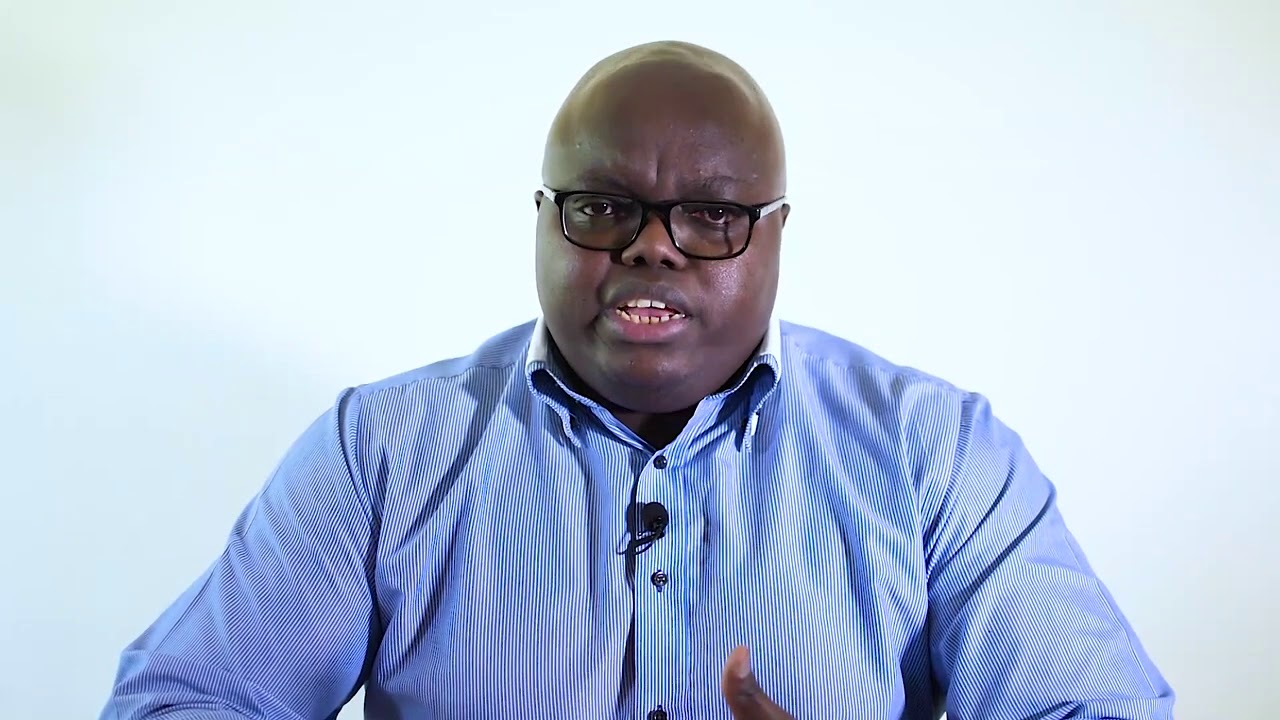Opinion
Is it Just a Safaricom Problem? Data Privacy Advocate Blows Whistle on Sophisticated State Spying
The death of Ojwang’, a digital activist and teacher, has exposed the sophisticated surveillance machinery that Kenya has quietly assembled.

How Kenya’s pervasive surveillance apparatus makes escape nearly impossible, with telecom companies as key enablers
When Albert Ojwang’ was traced to his father’s home in Homabay with pinpoint accuracy before his eventual death in police custody, the question wasn’t just whether he was being watched, but how comprehensively the Kenyan state has woven surveillance into the fabric of modern life.
The answer, according to privacy expert Mugambi Laibuta, is more chilling than most Kenyans realize: “Imagine walking through downtown Nairobi or posting a comment online, not knowing that somewhere, someone is watching, listening, and possibly recording. This is not just a paranoid thought… it is increasingly the reality.”
The anatomy of digital surveillance
The death of Ojwang’, a digital activist and teacher, has exposed the sophisticated surveillance machinery that Kenya has quietly assembled.
But to understand how authorities can locate targets with such surgical precision, one must first grasp the multiple layers of digital tracking that surround every Kenyan with a smartphone.
Every time you make a call, send a text, or connect to the internet, your mobile device creates what experts call “digital breadcrumbs”—a trail of data that reveals not just what you’re doing, but where you are, who you’re talking to, and increasingly, what you’re thinking.
“With increased use of social media, access to the internet and use of mobile phone communications technology,” Laibuta explains, these digital footprints have become the primary tool for state surveillance.
The question of whether “your phone is listening to you” isn’t hypothetical, it’s operational reality.
Call data records: The digital DNA
At the heart of this surveillance ecosystem are Call Data Records (CDRs)—detailed logs that telecommunications companies maintain for every interaction on their networks.
These records don’t just capture phone numbers and call duration; they include location data from cell towers, internet browsing patterns, and metadata that can reconstruct a person’s entire social network and daily routines.
When authorities wanted to find Ojwang’, they likely didn’t need to deploy complex tracking technology.
His CDRs would have shown them his movement patterns, frequent locations, and associates.
Cell tower triangulation can pinpoint a device’s location to within meters, making it virtually impossible to hide if your phone is switched on.
But CDRs are just the beginning. Kenya’s surveillance apparatus has evolved into what privacy advocates describe as a “digital panopticon”—a system where citizens can be observed from multiple angles simultaneously.
The invisible web of surveillance
Modern surveillance extends far beyond traditional phone tapping. Social media monitoring tools scan platforms like Twitter, Facebook, and WhatsApp for keywords and behavioral patterns.
Government contracts with companies providing these services remain largely secret, but their capabilities are extensive.
Internet service providers log every website visit, every search query, every download.
Financial surveillance tracks mobile money transactions—a particularly powerful tool in Kenya where M-Pesa has become ubiquitous.
Even seemingly anonymous activities leave traces: your phone’s unique identifiers, your browsing habits, the apps you download, and the WiFi networks you connect to all contribute to a comprehensive digital profile.
Location tracking doesn’t require GPS to be enabled. Cell towers constantly ping nearby devices, creating a continuous record of movement.
Facial recognition cameras reportedly being integrated into Kenya’s surveillance network can identify individuals in public spaces.
License plate readers track vehicle movements across major routes.
Why escape is nearly impossible
The uncomfortable truth, as Laibuta’s analysis reveals, is that avoiding state surveillance while participating in modern life has become virtually impossible.
Even if you abandon your smartphone, other people’s devices can betray your location through social media posts, photos, and location sharing.
“Open-Source Intelligence Tools” have democratized surveillance, allowing authorities to piece together information from publicly available sources as social media posts, business registrations, property records, news articles to build comprehensive profiles of targets.
Digital payments such as M-Pesa leave electronic trails.
Biometric identification systems are expanding.
Even cash transactions increasingly require some form of digital verification. The infrastructure of modern life has become the infrastructure of surveillance.
The telecom enablers
This is where telecommunications companies like Safaricom enter the picture not as the architects of surveillance, but as crucial enablers whose cooperation makes comprehensive monitoring possible.
The Kenya Human Rights Commission has documented over 80 cases of abductions and forced disappearances since the youth-led protests of 2024, with many showing evidence of digital tracking preceding arrests. Human rights organizations have accused Safaricom of providing security agencies with “virtually unfettered access” to customer data.
Opposition politician and former attorney general Justin Muturi was direct in his assessment following Ojwang’s death: “We are aware that Safaricom is complicit and indeed a facilitator in the tracing and abductions of Kenyans who have ended up dead.”
The company’s CEO Peter Ndegwa has denied these allegations, but the technical reality remains: without telecommunications companies’ cooperation whether voluntary or compelled, the surveillance apparatus would be significantly less effective.
The legal vacuum
Perhaps most concerning is that much of this surveillance operates in what privacy advocates describe as a “legal vacuum.”
Kenya’s constitution guarantees privacy rights, but the legal framework governing digital surveillance has failed to keep pace with technological capabilities.
Requests for customer data often bypass judicial oversight.
The criteria for surveillance remain opaque. Citizens have little recourse when their digital privacy is violated, and telecommunications companies face minimal penalties for sharing customer information with authorities.
The Office of the Data Protection Commissioner has begun taking action in individual cases—recently fining both Safaricom and BD East Africa Ksh250,000 each for unlawfully processing personal data—but these represent isolated interventions rather than systematic reform.
International pressure is mounting, with organizations like Access Now calling on Vodacom to investigate its Kenyan subsidiary’s role in potential human rights abuses.
But focusing solely on individual companies misses the broader picture: the surveillance infrastructure transcends any single provider.
Kenya is reportedly developing a comprehensive surveillance system integrating thousands of cameras, facial recognition technology, and license plate readers into a central command center.
This system would operate regardless of which telecommunications companies participate, though their cooperation makes it far more effective.
The Albert Ojwang case has crystallized a fundamental tension in modern Kenya: the infrastructure that enables economic development, digital inclusion, and technological progress is the same infrastructure that enables comprehensive state surveillance.
As Laibuta’s analysis makes clear, the question isn’t whether your phone is listening, it’s whether Kenyan society is prepared to accept the implications of a digital ecosystem where privacy has become effectively obsolete.
The challenge ahead isn’t just holding individual companies accountable, but designing a framework where the benefits of digital technology can be enjoyed without surrendering fundamental privacy rights.
Whether Kenya can achieve that balance may determine not just the fate of individual activists like Albert Ojwang, but the character of Kenyan democracy in the digital age.
The surveillance infrastructure that tracked Albert Ojwang to his father’s home represents just the visible tip of a comprehensive digital monitoring system that touches every aspect of modern Kenyan life.
Kenya Insights allows guest blogging, if you want to be published on Kenya’s most authoritative and accurate blog, have an expose, news TIPS, story angles, human interest stories, drop us an email on [email protected] or via Telegram
-

 Grapevine4 days ago
Grapevine4 days agoAlleged Male Lover Claims His Life Is in Danger, Leaks Screenshots and Private Videos Linking SportPesa CEO Ronald Karauri
-

 Lifestyle7 days ago
Lifestyle7 days agoThe General’s Fall: From Barracks To Bankruptcy As Illness Ravages Karangi’s Memory And Empire
-

 Americas2 weeks ago
Americas2 weeks agoEpstein Files: Bill Clinton and George Bush Accused Of Raping A Boy In A Yacht Of ‘Ritualistic Sacrifice’
-

 Business2 weeks ago
Business2 weeks agoCooking Fuel Firm Koko Collapses After Govt Blocks Sh23bn Carbon Deal
-

 Business2 weeks ago
Business2 weeks agoABSA BANK IN CRISIS: How Internal Rot and Client Betrayals Have Exposed Kenya’s Banking Giant
-

 Investigations1 week ago
Investigations1 week agoEpstein Files: Sultan bin Sulayem Bragged on His Closeness to President Uhuru Then His Firm DP World Controversially Won Port Construction in Kenya, Tanzania
-

 News1 week ago
News1 week agoAUDIT EXPOSES INEQUALITY IN STAREHE SCHOOLS: PARENTS BLED DRY AS FEES HIT Sh300,000 AGAINST Sh67,244 CAP
-

 Business1 week ago
Business1 week agoKRA Can Now Tax Unexplained Bank Deposits














